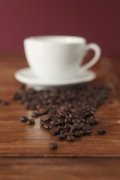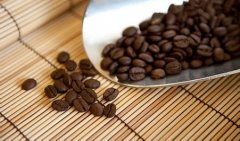Two simple ways to treat coffee beans after picking
After harvest, the fruit must immediately enter the treatment process, otherwise it will begin to ferment, making coffee beans have a bad smell. There are two methods of treatment: "solarization" and "washing", which will cause different flavors. Sun-dried beans have a complete natural mellow flavor, gentle aroma and more gum; the washing law has a good mellow taste, a high aroma and a certain sour taste.

Mellow taste is an important condition of espresso, which will produce a mellow and smooth feeling as strong as wine. Espresso lovers can increase the weight of sun-dried beans; water-washed beans are clean and clear, and they are suitable for follicular coffee brewing because they have no miscellaneous smell. In addition, washed beans have a good sour taste, which is the source of sweetness in espresso.
Coffee was first grown in the Arabian Peninsula, where the climate is dry and the rainy season is distinct, so the sun is used to make full use of the local sun. However, the conditions are different in different countries, the sun method can not be applied to every place, so there is the emergence of water washing method.
1. It rains all year round in the equatorial region, so water washing is mostly used, while in the subtropics, solarization is mostly used because the dry season is quite distinct from the rainy season.
two。 The washing method needs a lot of water, and the water quality should be good, otherwise the coffee will not taste good. Therefore, it is possible to use the water washing method in places rich in water resources.
Important Notice :
前街咖啡 FrontStreet Coffee has moved to new addredd:
FrontStreet Coffee Address: 315,Donghua East Road,GuangZhou
Tel:020 38364473
- Prev

Flavor characteristics of Coffee from Costa Rica
The coffee beans produced at the high latitudes of Costa Rica are famous in the world, full-bodied, mild in taste, but extremely sour. The coffee beans here have been carefully processed, which is why they have high quality coffee. The famous coffee is produced in the Central Plateau (CentralPlateau), where the soil consists of successive layers of volcanic ash and dust. First-class incense
- Next

We must pay attention to two problems that should be paid attention to in coffee bean storage.
The first is water, and the second is oxygen, which is the natural enemy of coffee bean storage. After opening the package, the coffee beans are digested by him as soon as possible. That's what it is to choose a suitable package or container and store it in the right space, but fresh coffee is extremely sensitive to the storage environment. In recent years, experts highly recommend the packaging material of aluminum foil (opaque) with one-way exhaust valve, which is large at home and abroad.
Related
- Beginners will see the "Coffee pull flower" guide!
- What is the difference between ice blog purified milk and ordinary milk coffee?
- Why is the Philippines the largest producer of crops in Liberia?
- For coffee extraction, should the fine powder be retained?
- How does extracted espresso fill pressed powder? How much strength does it take to press the powder?
- How to make jasmine cold extract coffee? Is the jasmine + latte good?
- Will this little toy really make the coffee taste better? How does Lily Drip affect coffee extraction?
- Will the action of slapping the filter cup also affect coffee extraction?
- What's the difference between powder-to-water ratio and powder-to-liquid ratio?
- What is the Ethiopian local species? What does it have to do with Heirloom native species?

